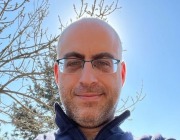My work covers the two major academic fields of philology and linguistics. With training in formal linguistics and in philological inquiry (joined with my background in philosophy), I seek to develop new methodologies for finding points of contact between these two distinct but interrelated fields: on the one hand, I explore how philological and historical evidence about languages shed light on universal properties of languages; on the other hand, I explore how universal properties of languages stand behind developments in the history of individual languages. More specifically, my work encompasses four areas of research intertwined in various ways. These diverse but connected fields of study are reflected in both my past and upcoming projects.
Hebrew and Semitic languages
In my studies, I have explored and analyzed different types of phenomena across the Semitic languages, mostly in the history of Hebrew and Aramaic. More generally, in my work I aim to exemplify the mutually beneficial relationship between study of the Semitic languages and theoretical linguistics.
I have engaged in several studies comparing a number of topics across the Semitic languages (sometimes including other languages), using methods from comparative linguistics and typological studies. In addition, I have also focused on individual languages in longer studies: my work on the Hebrew language spans the Biblical, Mishnaic, and Modern periods. In Aramaic, I study specific topics in Official, Late, and Neo-Aramaic. My main work is on Jewish Babylonian Aramaic: two editions of my monograph on the grammar of this dialect have been published. Finally, I have also worked on specific phenomena in the history of Akkadian.
Some of my publications are devoted to examining the intersections between linguistics and philology more broadly, and I point to the mutual benefits that both fields can achieve by considering the methodological questions of the other language. More specifically, I develop a methodology on the extent to which linguistic knowledge can assist in reconstructing ancient grammars.
Theoretical linguistics
My research interests revolve around different aspects of linguistics, including historical linguistics, syntax, and semantics. Specific topics that I study are negation, reciprocal constructions, possessive constructions, non-selected datives, and causative constructions. My studies over the last decade on negation, reciprocity, and datival constructions have led to a more extended research agenda for the coming years in order to encourage dialogue between the intellectual communities of formal semanticists and historical linguistics and to explore the ways in which the tools and findings of each field can bring mutual benefit to each other.
More recently I also pursues similar conceptual aims in the interface of philosophy and linguistics – disciplines that were the focus of my dissertation, which explores the notion of predication, arguing for new ways to implement philosophical notions of predication in linguistics. In recent years, I have devoted considerable research effort to causation. This topic is central to all academic fields, and especially philosophy, linguistics, and cognitive psychology, all of which have sought to uncover the nature of causation and understand how causal structures are represented in human cognitive systems. My current involvement in causation is in several independent investigations into the connections between causality studies in the above three disciplines.
History of linguistics
Solid inquiries into linguistic theories should rely on an intimate familiarity with the history of the academic field. I have received the Marie Curie Grant from the European Commission for the project entitled, "Linguistics as a Science - a Historical Philosophical Study". Most of my work in this field deals with the scholarship of Ferdinand de Saussure. I believe that a study of Saussure’s philosophy of science can lead to a better interpretation of his approach to the scientific study of languages. While various historians of linguistics speak about Saussure in terms of a revolution, I advocate a more moderate perspective. I depict him less as a revolutionary and more as a member of the linguistic community of his time, who dealt with the challenges recognized by his contemporaries (The Neogrammarians and others).
Linguistic studies in dialogue with Jewish studies
As interaction between textual and linguistic analysis is necessary to conduct my studies, I devote much time to the study of the texts on which I conduct my linguistic research, by extensively researching both the primary texts in Hebrew and Aramaic and the related academic literature commenting on them. Specifically, this has led to various publications which provide new research on both Biblical and Rabbinic Hebrew texts as well as Aramaic texts, sometimes proposing new interpretations to these texts and occasionally engaging in broader discussions in Jewish Studies concerning these sources.

